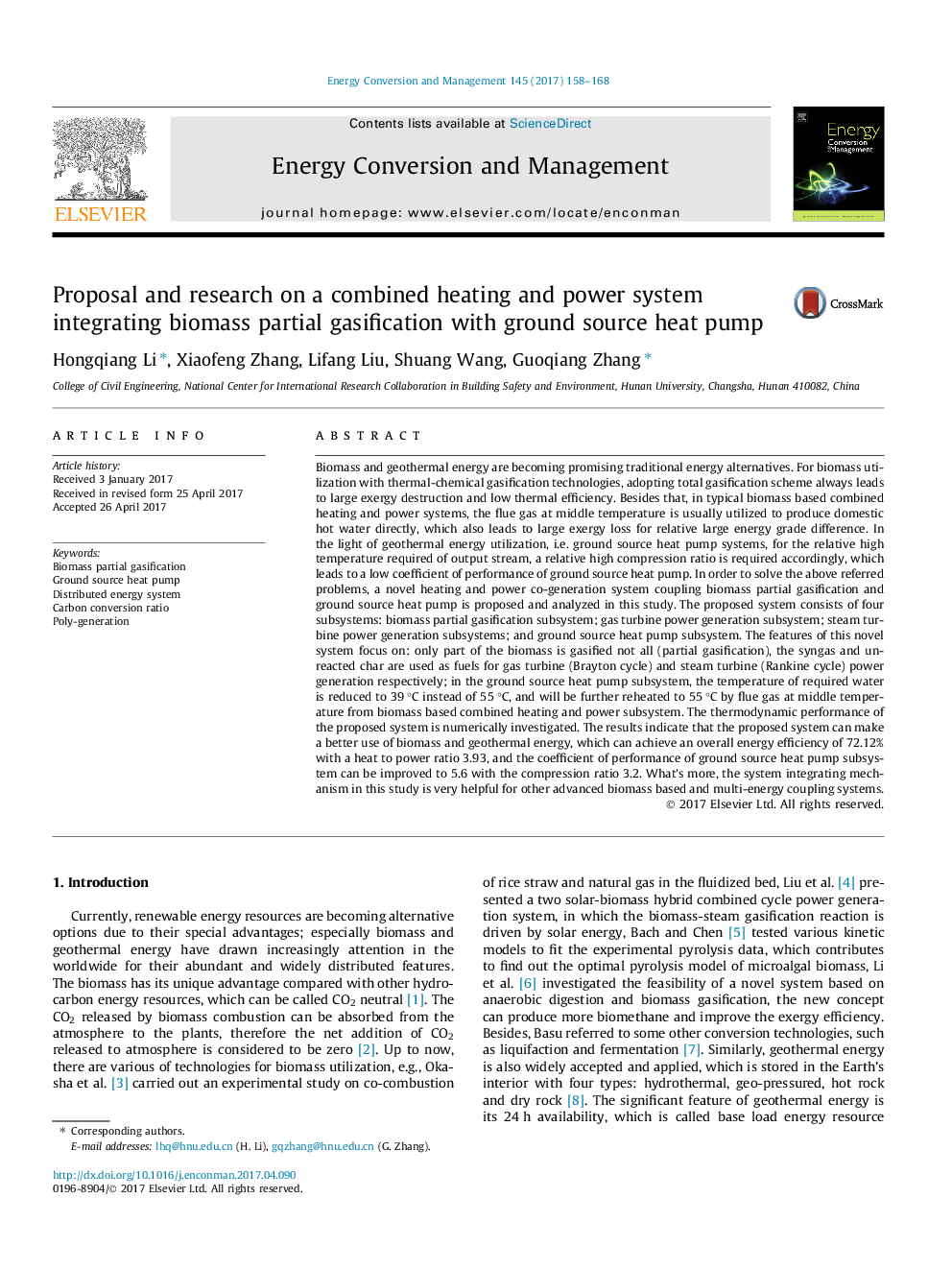| Article ID | Journal | Published Year | Pages | File Type |
|---|---|---|---|---|
| 5012726 | Energy Conversion and Management | 2017 | 11 Pages |
Abstract
Biomass and geothermal energy are becoming promising traditional energy alternatives. For biomass utilization with thermal-chemical gasification technologies, adopting total gasification scheme always leads to large exergy destruction and low thermal efficiency. Besides that, in typical biomass based combined heating and power systems, the flue gas at middle temperature is usually utilized to produce domestic hot water directly, which also leads to large exergy loss for relative large energy grade difference. In the light of geothermal energy utilization, i.e. ground source heat pump systems, for the relative high temperature required of output stream, a relative high compression ratio is required accordingly, which leads to a low coefficient of performance of ground source heat pump. In order to solve the above referred problems, a novel heating and power co-generation system coupling biomass partial gasification and ground source heat pump is proposed and analyzed in this study. The proposed system consists of four subsystems: biomass partial gasification subsystem; gas turbine power generation subsystem; steam turbine power generation subsystems; and ground source heat pump subsystem. The features of this novel system focus on: only part of the biomass is gasified not all (partial gasification), the syngas and un-reacted char are used as fuels for gas turbine (Brayton cycle) and steam turbine (Rankine cycle) power generation respectively; in the ground source heat pump subsystem, the temperature of required water is reduced to 39 °C instead of 55 °C, and will be further reheated to 55 °C by flue gas at middle temperature from biomass based combined heating and power subsystem. The thermodynamic performance of the proposed system is numerically investigated. The results indicate that the proposed system can make a better use of biomass and geothermal energy, which can achieve an overall energy efficiency of 72.12% with a heat to power ratio 3.93, and the coefficient of performance of ground source heat pump subsystem can be improved to 5.6 with the compression ratio 3.2. What's more, the system integrating mechanism in this study is very helpful for other advanced biomass based and multi-energy coupling systems.
Related Topics
Physical Sciences and Engineering
Energy
Energy (General)
Authors
Hongqiang Li, Xiaofeng Zhang, Lifang Liu, Shuang Wang, Guoqiang Zhang,
